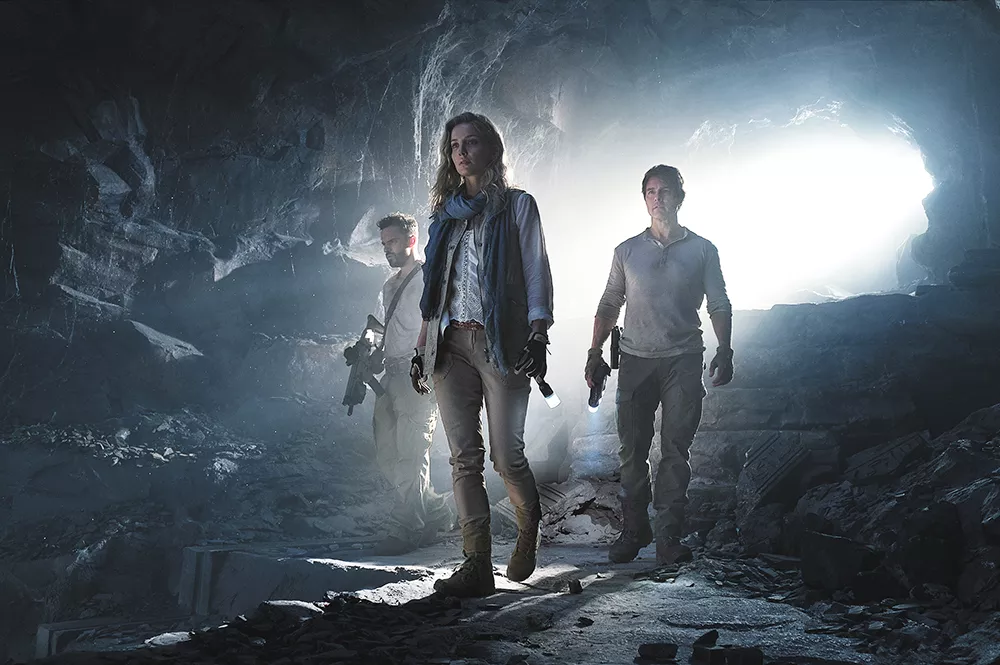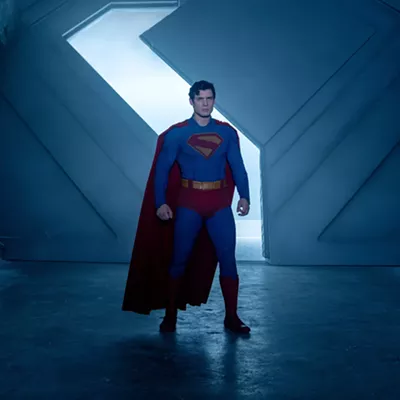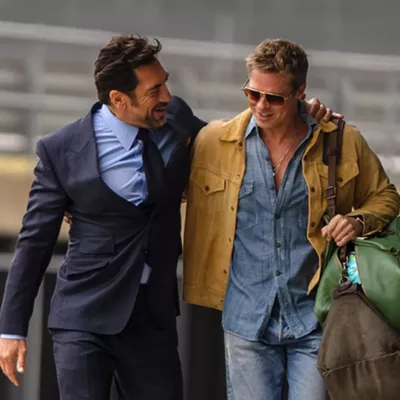There's no denying that The Mummy is stupid. Really, really stupid. But perhaps it's not colossally stupid enough.
Let me explain. Films like this need to completely and unabashedly embrace their monster-movie roots, to ratchet up the nonsense and treat ridiculousness as gospel. The 1999 version of this story, starring Brendan Fraser and Rachel Weisz, did just that: It was hardly great, but it seemed to recognize that greatness was beyond its grasp anyway, and it settled for an amiable cheesiness that perfectly suited the material.
This new Mummy, meanwhile, only halfway commits to its own goofiness. It's simply too reserved. It goes through its B-movie motions, requiring its actors to recite clunky, ham-handed dialogue with the utmost seriousness — example: "We have to destroy the stone!" — and to writhe around while CGI spiders and rats crawl all over them. Sometimes, though, you catch it trying to wink at us, to let us know it's in on its own joke, and it's simply not convincing.
It's almost like the movie is embarrassed at its own earnestness; I kept thinking of Pee-wee Herman gracelessly tumbling over the handlebars of his bike and proclaiming, "I meant to do that!"
The problem here is the weight of narrative expectations. Universal has been trumpeting The Mummy as the foundation for its upcoming "Dark Universe," which will apparently revamp the studio's other classic creatures in their own respective installments. (Note to Hollywood: Maybe wait to see if your movie is successful before making plans to spin it off into a series.) This requires the screenplay to stop dead in its tracks and deliver unnecessary, long-winded explanations about how this universe works, and it totally saps any sense of forward momentum.
The stage is set in the opening expository sequence, in which Russell Crowe growls a comically long monologue about the ancient Egyptian princess Ahmanet (Algerian actress Sofia Boutella), who was ready to inherit the throne until her pharaoh father sired a son. So she killed her dad (and the baby, for good measure) and went about conjuring up Set, the God of Death.
"They made a pact," Crowe intones, "a pact that would unleash... darkness itself." And we're off to the races.
In the present day, Tom Cruise plays a would-be Indiana Jones named Nick Morton, a swashbuckler of questionable employment — he's a soldier, I guess, but he's also, according to him, a "liberator of precious antiquities." While on a mission in northern Iraq, Morton stumbles upon what appears to be an Egyptian tomb, and discovers Ahmanet's sarcophagus weighed down in a pool of liquid mercury.
But hang on: "This isn't a tomb," observes the film's token female archaeologist/damsel-in-distress (Annabelle Wallis). "It's a prison!"
They liberate Ahmanet's remains anyway, and... well, do I really need to tell you what happens next? The mummy wakes up and goes about sucking the life out of everyone she encounters, amassing a zombie army and gradually becoming less decayed. All the while, she's seemingly possessing Nick, which somehow makes him immune to grievous bodily harm (he survives a gnarly plane crash in the movie's single impressive action scene) and is suddenly fluent in ancient Egyptian.
If I've made this sound kind of fun in a dopey way, that's because it sometimes is. The first 45 minutes or so of The Mummy moves briskly, and it promises a better, more energetic movie than we ultimately get. I'll always maintain a sliver of affection for movies about inexplicable curses, enchanted crystals, ancient daggers, reanimated corpses and drippy, underwater catacombs. But unless this proposed series can cut loose and have some fun, it should probably just be buried alive. ♦


















